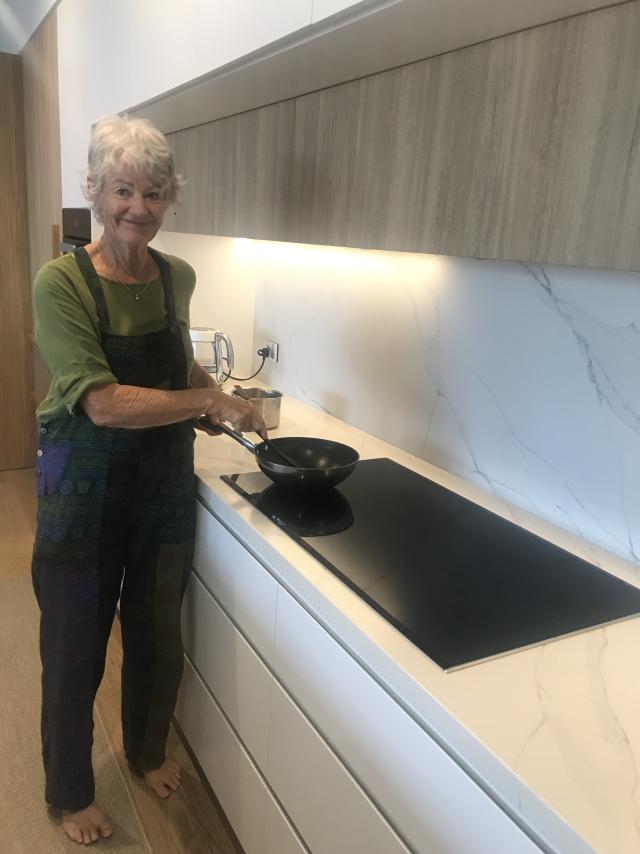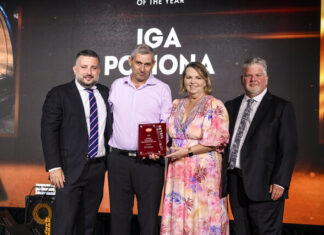Since cooktops were introduced, there were only really two options other than traditional woodfire cooking – the ever costly, unresponsive and slow electric cooktop and the more nimble and convenient gas cooktop which quickly became preferred by those who could afford the change.
Next, the ceramic cooktop hit the marketplace. Still slow and clunky to use, ceramic cooktops boasted smooth, streamlined, easy-to-clean surfaces which appealed to many. Yet the preference still remained with gas for many.
More recently, induction cooktops have taken the market by storm, boasting impressive spontaneity and instant reactivity. One touch of a button and temperatures rise or plummet in an instant making them the perfect solution for so many difficult dishes.
With simple surfaces to clean and touch button zones, modern cooktops even boast timers to ensure safety and control – even when you leave the room.
Though convenient to use, many are still resistant to move from the widely favoured gas cooktop to the even more responsive induction cooktop, preferring the experience of seeing the flame lower and rise at the turn of a knob. Many still hold the belief that gas is more responsive.
Early adopters of solar, Anne Kennedy and her husband installed a 1.5kW solar system on their roof as they were particularly interested in energy efficiency.
In a recent video interview, Anne explains how it made sense to her in electrifying her household to remove their old cooktop and replace it with an induction cooktop when it came time to upgrade.
“What really has convinced us about the benefits of induction cooking is how fast it is, that it’s a lot cleaner, just wipe the stovetop over and it’s done, and it is saving us on our energy bill,” she said.
As an all-electric household, even with a small solar system, in the last two years, since changing energy retailers, the household is more than $700 in credit.”
During the recent EV & Electrify Everything Expo cooking demonstrations, celebrity chef Matt Golinski demonstrated how quickly induction boils water with a pasta cooking demonstration.
While spaghetti was completely cooked and ready to serve using induction, the exact same quantity in the same sized pan was only just starting to boil on the counterpart commercial gas cooktop.
According to the Department of Energy, “induction appliances are up to three times more efficient than gas stoves, and up to 10 per cent more efficient than conventional smooth top electric ranges.“
“This improved efficiency performance can result in lower energy costs as well as lower rates of air pollution associated with energy generation.”
When coupled with solar panels, converting to induction is simply the smart option in reducing your load and in turn like Anne, in reducing your household’s energy costs.
Another important consideration with respect to the health side effects of cooking with gas is air pollutants.
According to Asthma Australia chief executive officer Michelle Goldman, “gas cooktops contribute 12 per cent of the childhood asthma burden, which is equivalent to tobacco smoke in the home.”
By switching to induction, families can reduce the release of air pollutants in their homes, creating much healthier indoor environments.
Those curious to try induction cooking and test the difference without any upfront cost can contact Noosa or Cooroy Libraries who lend plug-in induction cooktops for this purpose at no
charge. Simply contact the library to reserve your cooktop trial today.
If you are interested in finding out more, visit ZEN Inc. website at zeroemissionsnoosa.com/rewiring-noosa. Here you’ll find Anne’s video about her decision to convert to induction and other video stories about energy saving options such as EV’s, Energy Monitoring and Home Batteries to save on your energy costs. There is also a toolkit, online calculators and much more. For any queries, contact us at info@zeroemissionsnoosa.com








